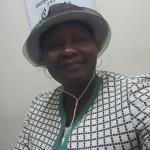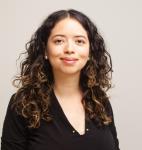Side event CSW67: WSIS Gender Trendsetters: ICTs for Gender Inclusion
WSIS Gender Trendsetters
Session 358
The World Summit on the Information Society (WSIS) Process affirms the importance of promoting and maintaining gender equality and women empowerment, guaranteeing the inclusion of women in the emerging global Information and Communication Technologies (ICTs) society, and emphasizes the need to fully integrate gender equality perspectives in WSIS related strategies and facilitate their implementation to ensure that the Information Society enables women’s empowerment and full participation based on equality in all spheres of society and in all decision-making processes. ICTs are tools through which gender equality and women's empowerment can be advanced, and are integral to the creation of societies in which both women and men can substantively contribute and participate. Dedicated to the issues of bridging the gender divide, maintaining gender equality, and a 50/50 gender balance participation at the WSIS Forum, WSIS continues their special track on ICTs and Gender Mainstreaming. Through this special track, WSIS introduces initiatives such as the WSIS Stocktaking Repository of Women in Technology to connect women in all sectors of the ICT industry, the WSIS Gender Trendsetters to advocate and promote the inclusion of gender issues in ICT discussions, and many other interactive sessions that will be held during the upcoming WSIS Forum 2023. Gender mainstreaming is a cross-cutting issue across all WSIS Action Lines, from strategies and planning through to implementation, to ensure the action lines take account of continuing gender issues, redress discrimination and contribute to ending violence and harassment.
This is a side event of the sixty-seventh session of the Commission on the Status of Women happening in New York.
Remote participation will not be supported.

Hon. Neema Lugangira (MP) is a Member of Parliament in Tanzania who bring forward extensive experience and successful track record in championing policy and legislative reforms for improved investment enabling environment for the agricultural, mining and oil & gas and health sectors to mention a few. As a Parliamentarians her personal prioritised agendas include food and nutrition security; digital development, community health, gender equality in politics and NGOs sector development in Tanzania and across Africa. Her continued passion and commitment for sustainable and economic development not only in her country Tanzania but also Africa led her to be the Founding Chair of the African Parliamentary Network on Internet Governance (APNIG) and the Founding Chair of the Parliamentary Network on the World Bank and International Monetary Fund – Tanzania Chapter. Hon. Lugangira is also the Founder of two NGOs; Agri Thamani, which is committed to ending malnutrition in Tanzania; and Omuka Hub that aims to accelerate digital inclusion in peripheral regions of Tanzania. Internationally, Hon. Lugangira is a Member of the International Parliamentary Network on Education (IPNEd); the UNITE – Global Parliamentarians Network to End Infectious Diseases; serves as the Co-Chair of Global Parliamentary Group to Combat Neglected Tropical Diseases; Vital Voices Fellow; and WSIS Gender Trendsetter for Advancing Digital Gender Inclusion.

Yvette RAMOS, Ms. Science of Engineering (electronics-telecom), EPF (1992), and Ms. Human Resource Management, MBA(IAE2002) – France. PhD candidate Climate Change and Sustainable Development Policies – Portugal http://alteracoesclimaticas.ics.ulisboa.pt/en/
With a background in Engineering and twenty five years professional experience, starting with a position of Project Manager in the Industry (Schlumberger, Ascom) to Expert in Strategic planning and Change Management, including capacity development for telecom companies and hydrological, meteorological and climate services at international level, she has developed extensive experience on managing teams and projects abroad.
Over the last twenty years, she had the chance to work with international teams, in the private and public sector, in the business and development environment. She holds the position of Expert at the specialized United Nations Agency the ITU, the International Telecom Union, Development Bureau, and the World Meteorological organization, both with HQ in Geneva, Switzerland.
She had recently the challenging position of Project Manager (2018-2021) in the World Bank project for the modernization of the Department of Meteorology and Hydrology of the Union of Myanmar.
She is the Managing Director of an IP- Intellectual Property Law firm based in Geneva.
First woman president of the +100 years aged Swiss Engineering Geneva chapter (2011-…) and founder and president of WOMENVAI, an international NGO a platform for innovative projects in Environment and High-Tech – led by women – supported by women AND men.

Gabdibé GAB-HINGONNE was born on March 21, 1973 in Pala, Chad. She is a graduate specializing in Education Sciences in ICT and Training from the University of Montreal in Canada, she has a degree in geography in 1998 at the University of N'Djamena, a master's degree in Education Sciences, option secondary education. She has been a geography teacher in a high school in N'Djamena and an educational advisor since 2003. But since January 2022, she has been a trainer in educational technology at the Virtual University of N'Djamena in Chad. She is the National Coordinator of Action for the Education and Promotion of Women (AEPF-Tchad), a civil society organization that has been campaigning for the empowerment of women since 2007. In addition to educational activities, she has been involved since 2013 in the organization of the International Girls in ICT Day as Vice-President of the organization. She is a member of ISOC, ICANN and the AEPF-Chad focal point for the protection cluster and GBV sub-cluster. It allowed the organization: Action for the Education and Promotion of Women to be granted special ECOSOC status in August 2018. It has been organizing, since 2014 until today, training for leaders of groups and associations of women in ICT to enable them to take advantage of the opportunities offered by the Internet for their empowerment.

Susana Arrechea works at New Sun Road, a Californian start-up incubated at UC Berkeley. She is leading the Internet-enabled solar Digital Community Centers project, funded by the US Agency for International Development, Microsoft, and DAI.
Arrechea's local team organizes Mayan indigenous Q'eqchi' women to achieve digital and leadership skills and get new income sources from providing Internet and power services to the community.
Arrechea earned an undergraduate in chemical engineering from the University of San Carlos of Guatemala (USAC). She received a scholarship from Fundación Carolina to study a Master of Science and a Ph.D. degree in Nanoscience and Nanotechnology from the Universidad de Castilla-La Mancha, Spain. She described more than 14 new organic molecules derived from porphyrins with applications in solar devices. In 2015, she was a visiting researcher at UC Berkeley, under the Fulbright NEXUS program. From 2016 to 2020, she was a Research Professor at USAC.
In 2017, she won the Galardón de Guatemaltecos Ilustres award and the TWAS Young Scientists Award in Guatemala. In 2020, she won the OWSD-Elsevier Foundation Award for Early-Career Women Scientists in the Developing World representing Latin America and co-founded the OWSD Guatemala chapter.
-
 C1. The role of governments and all stakeholders in the promotion of ICTs for development
C1. The role of governments and all stakeholders in the promotion of ICTs for development
-
 C2. Information and communication infrastructure
C2. Information and communication infrastructure
-
 C3. Access to information and knowledge
C3. Access to information and knowledge
-
 C4. Capacity building
C4. Capacity building
-
 C5. Building confidence and security in use of ICTs
C5. Building confidence and security in use of ICTs
-
 C6. Enabling environment
C6. Enabling environment
-
 C7. ICT applications: benefits in all aspects of life — E-government
C7. ICT applications: benefits in all aspects of life — E-government
-
 C7. ICT applications: benefits in all aspects of life — E-business
C7. ICT applications: benefits in all aspects of life — E-business
-
 C7. ICT applications: benefits in all aspects of life — E-learning
C7. ICT applications: benefits in all aspects of life — E-learning
-
 C7. ICT applications: benefits in all aspects of life — E-health
C7. ICT applications: benefits in all aspects of life — E-health
-
 C7. ICT applications: benefits in all aspects of life — E-employment
C7. ICT applications: benefits in all aspects of life — E-employment
-
 C7. ICT applications: benefits in all aspects of life — E-environment
C7. ICT applications: benefits in all aspects of life — E-environment
-
 C7. ICT applications: benefits in all aspects of life — E-agriculture
C7. ICT applications: benefits in all aspects of life — E-agriculture
-
 C7. ICT applications: benefits in all aspects of life — E-science
C7. ICT applications: benefits in all aspects of life — E-science
-
 C8. Cultural diversity and identity, linguistic diversity and local content
C8. Cultural diversity and identity, linguistic diversity and local content
-
 C9. Media
C9. Media
-
 C10. Ethical dimensions of the Information Society
C10. Ethical dimensions of the Information Society
-
 C11. International and regional cooperation
C11. International and regional cooperation
-
 Goal 1: End poverty in all its forms everywhere
Goal 1: End poverty in all its forms everywhere
-
 Goal 3: Ensure healthy lives and promote well-being for all
Goal 3: Ensure healthy lives and promote well-being for all
-
 Goal 4: Ensure inclusive and equitable quality education and promote lifelong learning opportunities for all
Goal 4: Ensure inclusive and equitable quality education and promote lifelong learning opportunities for all
-
 Goal 5: Achieve gender equality and empower all women and girls
Goal 5: Achieve gender equality and empower all women and girls
-
 Goal 8: Promote inclusive and sustainable economic growth, employment and decent work for all
Goal 8: Promote inclusive and sustainable economic growth, employment and decent work for all
-
 Goal 10: Reduce inequality within and among countries
Goal 10: Reduce inequality within and among countries
-
 Goal 16: Promote just, peaceful and inclusive societies
Goal 16: Promote just, peaceful and inclusive societies
-
 Goal 17: Revitalize the global partnership for sustainable development
Goal 17: Revitalize the global partnership for sustainable development